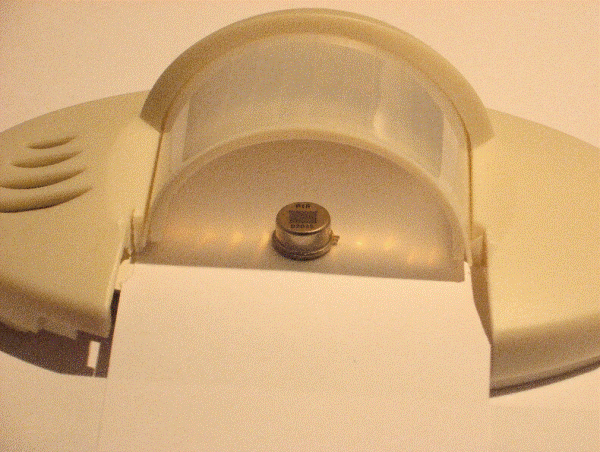Wednesday, 26 March 2014
Tuesday, 25 March 2014
Moving along nicely
Our latest project is a "Motion Sensing Night Light" - see below.
The design process involves lots of stages. Without each step we run the risk of ploughing headlong into a major error that means starting again. You know; "Measure twice: cut once!"
So far we've drawn schematic diagrams of our intended circuit, built a mockup and translated that into a circuit design that works on a type of circuit board called 'stripboard' — now we're cutting boards and cutting tracks ready for the components.
The motion sensing night light is a dandy little device that can live in a bedroom, hallway or indeed any place where you're likely to be moving around in otherwise darkness.
It uses a PIR sensor — Passive Infrared — to detect temperature changes in a room. This low level heat (infrared light) is emitted from our bodies so when we move about it detects our movement.
Once triggered, a titchy computer called a microcontroller, will fade up some LED lights and then slowly fade them down again when no movement is sensed. We'll be programming these microcontrollers to do exactly what we want in the weeks to come.
It certainly beats having to put the room lights on when you get up in the middle of the night!
The design process involves lots of stages. Without each step we run the risk of ploughing headlong into a major error that means starting again. You know; "Measure twice: cut once!"
So far we've drawn schematic diagrams of our intended circuit, built a mockup and translated that into a circuit design that works on a type of circuit board called 'stripboard' — now we're cutting boards and cutting tracks ready for the components.
The motion sensing night light is a dandy little device that can live in a bedroom, hallway or indeed any place where you're likely to be moving around in otherwise darkness.
It uses a PIR sensor — Passive Infrared — to detect temperature changes in a room. This low level heat (infrared light) is emitted from our bodies so when we move about it detects our movement.
 |
| A breakdown of a PIR sensor showing how the multifaceted lens creates lots of moving spots of light on the sensor. Image: Wikipedia |
Once triggered, a titchy computer called a microcontroller, will fade up some LED lights and then slowly fade them down again when no movement is sensed. We'll be programming these microcontrollers to do exactly what we want in the weeks to come.
It certainly beats having to put the room lights on when you get up in the middle of the night!
Subscribe to:
Comments (Atom)










